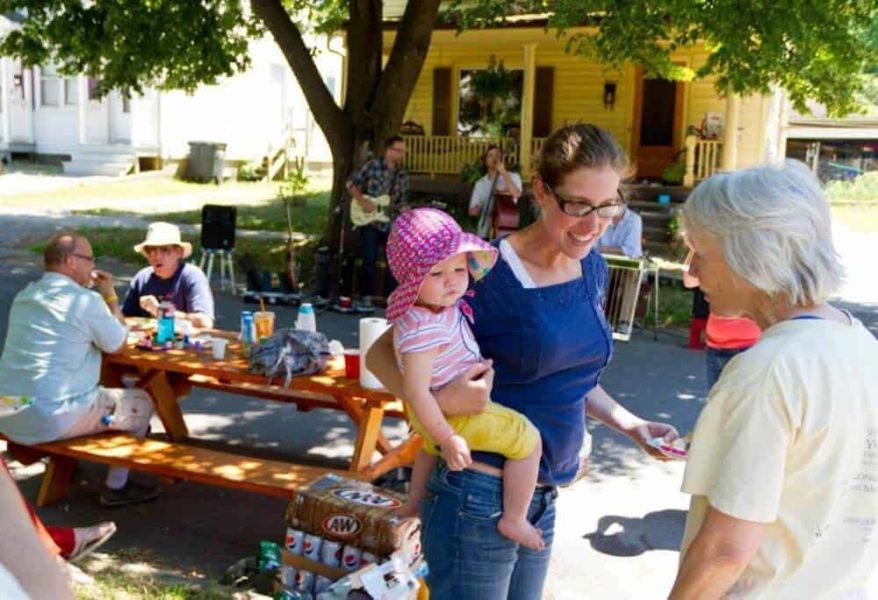Know your neighbor, save the planet. That’s the key finding of a study that finds socializing with neighbors leads to more planet-friendly behaviors than spending time with friends or family.
The study, published by Environment and Behavior journal, finds that people who visit neighbors are more likely to “keep up with the Joneses” on green behaviors, including water and energy conservation, buying organic fruits and vegetables and driving less.
“These findings suggest that our neighbors play a unique and crucial role in getting people to act on climate change,” says study author Thomas Macias of the University of Vermont. “Surprisingly, green outcomes were higher with neighbors than family relatives or close friends.”
Researchers blame the differences, in part, on the overwhelming similarity of loved ones due to shared cultural and socio-economic upbringings. “This similarity provides emotional benefits, but limits our exposure to important new ideas,” says Macias, a professor in UVM’s Sociology Department.
In contrast, neighbors are relatively diverse enough to expose us to greater amounts of new information, such as environmental issues and practices. And shared geography means neighborhood discussions will naturally gravitate towards sustainability matters.
To identify predictors of green behavior, researchers used the 2010 U.S. General Survey, the largest and most recent national collection of Americans’ environmental attitudes and behavior. They compared green outcomes with three variables: personal relationships, generalized trust and participation in community organizations.
“Neighbors can be important role models,” Macias says. “Backyard conversations, sidewalk exchanges and neighborly visits may be some of the best ways to learn about environmentally friendly practices.”
Bottom-line: Be kind to your neighbors; they may hold the secret to greater action on climate change, researchers say.
BACKGROUND
The title of the study is “Know Your Neighbors, Save the Planet: Social Capital and the Widening Wedge of Pro-Environmental Outcomes.” The study was co-authored by Thomas Macias and UVM graduate student Kristin Williams.
Key findings:
- Socializing with neighbors is positively linked to a set of environmental behaviors, namely, buying chemical-free fruits and vegetables, using less water, consuming less household energy and driving less
- Generalized trust in others is positively linked to a willingness to make personal sacrifices for the environment through green taxes, higher prices and standard of living reductions
- Hours watching TV was negatively associated with a willingness to make standard of living reductions for the benefit of the environment.
- Religious attendance significantly was positively linked to the likelihood that respondents would be willing pay higher taxes and higher prices for the benefit of the natural environment
The findings suggest amenities that foster community dialogue – from online forums to common social areas – could be a cost-effective way to promote greater adoption of green behaviors.
The standard measures of environmental concern, including self-reported knowledge of environmental issues, were the most consistent predictors of green behavior. However, the study identifies several statistically important new predicators of environmental behaviors.
The findings advance two fields: environmental sociology – which explores the relationship between social interactions and human environmental impacts – and social capital, which highlights the importance of individual and community connections in education, housing, jobs and personal health.
While family visits (“bonding ties”) tend to focus on the emotional needs of family members, neighborly exchanges (“bridging ties”) tend to focus on community concerns, researchers say. The study will appear in a forthcoming print edition of Environment and Behavior and garnered advance publication online in 2014.


